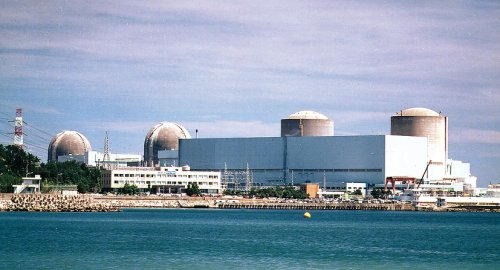 |
| Gori nuclear
power station in Busan (Korea Herald file
photo) |
Fukushima disaster heightens anti-atomic
campaign; government unswayedIn his campaign for the
by-election of Gangwon governor last year, Um Ki-young, the conservative ruling
party candidate, pledged to attract a nuclear power plant to the
province.
He blasted his rival from the liberal main opposition party for
being lukewarm on the idea, which he said would help vitalize the economy of the
area.
But Um, a former president of a major broadcasting company, was put
on the defensive when a nuclear power plant in northeastern Japan was crippled
by an earthquake and tsunami on March 11, causing the world’s worst nuclear
accident in 25 years.
With the whole nation engulfed in fears of
radioactive fallout from Japan, he abruptly changed his mind, saying that a
careful review was needed before deciding on the project.
His
flip-flopping on the issue was not the only reason for his eventual defeat to
the opposition candidate, whom he had led by a large margin in pre-election
polls, but it certainly eroded his credibility.
His case has been
remembered by many other politicians as a lesson that they should be more
cautious about nuclear power, which has been regarded as an essential part of
the country’s energy portfolio.
Japan’s nuclear disaster has served to
galvanize a civic antinuclear movement here, which advocates phasing out
reactors mainly by increasing energy efficiency and expanding renewable power
use.
The failure in stabilizing the reactors at the Fukushima Daiichi
plant a year after the disaster has reminded ordinary Koreans of the huge
potential dangers of what they believed to be a safe, clean and cost-efficient
source of producing electricity.
“Before the Fukushima accident, a small
number of environmental groups raised voices for abandoning nuclear power, but
now they are joined by figures from a wide spectrum of professions,” said Lee
Heon-seok, co-head of the Joint Action for Nuclear-free Society, a coalition of
about 40 civic organizations formed last June.
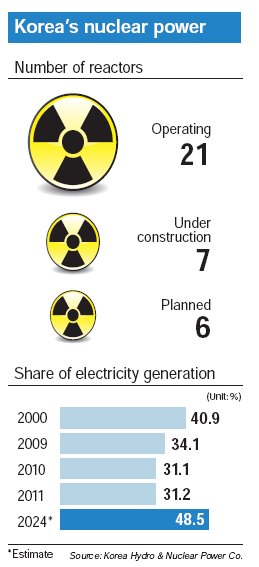
A growing number
of civic activists, lawyers, professors and religious leaders have participated
in the movement to seek alternatives to the government’s plan to expand the
nuclear capacity to meet an ever-increasing demand for electricity.
Korea
operates 21 reactors and plans to build 13 more ― seven of them under
construction and six others planned ― by 2024 to increase the nuclear share of
the country’s electricity needs to 48.5 percent from 31.2 percent last
year.
Antinuclear tideThe scheme may face a strong
headwind as surveys have shown a rising antinuclear tide among the public in the
wake of the Fukushima accident.
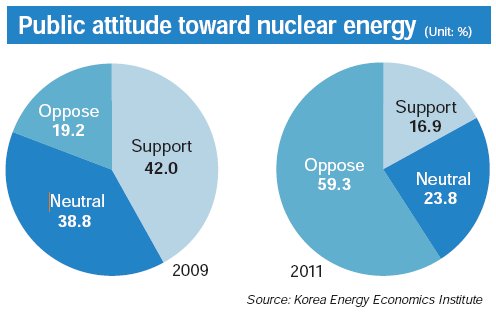
In a poll taken
by the Korea Energy Economics Institute in 2009, about 42 percent of Koreans
favored nuclear power and 38.8 percent remained neutral. But the corresponding
figures fell to 16.9 percent and 23.8 percent in a survey conducted last
August.
The proportion of respondents who opposed it jumped to 59.3
percent from 19.2 percent over the cited period.
Less than half felt
nuclear power was dangerous in 2009 but the figure climbed to 75.6 percent in
2011 after Fukushima. Confidence in the safety of local nuclear power stations
weakened from 70.5 percent to 52.6 percent.
More than 70 percent were in
favor of building more reactors in 2009 but the proportion shrank to 38 percent
last year.
Nearly 55 percent said they found no problem with a nuclear
plant being built in the area near where they lived in 2009, but only 29.5
percent replied so in 2011.
Public sentiment against nuclear power was
exacerbated particularly in the provinces of North Gyeongsang, South Gyeongsang
and South Jeolla and the southeastern city of Busan, where most of the reactors
in operation or planned are located.
Little swayed by the surge in the
antinuclear tide, President Lee Myung-bak committed himself to carrying out the
nuclear expansion plan in a recent news conference.
Lee argued that for
Korea, which “does not produce a drop of oil,” there is no other option but
nuclear power to meet the growing demand for electricity. He said abandoning
nuclear energy would cause electricity rates to rise by as much as 40
percent.
Lee, who played a decisive role in gaining a $40 billion deal
with the United Arab Emirates in 2009 to construct and operate four reactors,
reiterated his pledge to make Korea one of the five major players in the global
nuclear industry. Two years ago, his administration announced a plan to export
80 reactors by 2030 to take a 20 percent share of the world market.
Lee
also said it would take at least three to four decades before renewable energy
becomes economically viable.
His advocacy of nuclear power has drawn
criticism from antinuclear activists.
“Lee’s nuclear policy is just
anachronistic and turns a blind eye to the dominant public opinion,” said Kim
Hye-jeong, an activist who works for the Korean Federation for Environmental
Movement.
“He is leading the nation in the wrong direction to make us
rely on nuclear power and thus burdened with its dangers forever,” she
said.
Kim criticized the policy focusing on nuclear energy for barring
the development of the renewable power industry.
The Joint Action for
Nuclear-free Society also issued a statement asserting Lee was either
misinformed or distorted the facts to make his case for nuclear expansion. The
group said Germany has not seen higher utility bills and has continued to export
electricity even after shutting down eight reactors in 2011 as part of a plan to
decommission all 17 reactors by 2022.
Antinuclear groups are planning to
hold a massive rally Saturday to call for the abandonment of nuclear power ahead
of the first anniversary of the massive earthquake and tsunami that hit
northeastern Japan, triggering the nuclear disaster.
A critical
juncture
“What we are suggesting is to phase out reactors in
operation starting with the two oldest ones and discard those under construction
or on the drawing board,” said Lee Heon-seok, who co-heads the civic coalition
for nuclear-free society.
“Now the nation is at a critical juncture to
choose whether to expand or gradually abolish nuclear power,” he said.
In
support of the antinuclear campaign, Seoul Mayor Park Won-soon and heads of 45
small cities, counties and wards gathered last month to adopt a declaration
pledging to go nuclear-free and turn to renewable energy. Park has pushed an
initiative to cut energy consumption in the capital over the coming three years
by the same amount that would make it possible to do away with a nuclear
reactor.
The movement has recently taken on an increasing political
implication as liberal and progressive opposition parties are trying to
publicize their stances in the run-up to the Seoul Nuclear Security Summit
slated for March 26-27, which President Lee hopes will be one of his crown
diplomatic achievements.
Dozens of former and incumbent lawmakers from
the main opposition Democratic United Party launched a group in February to push
for the country’s abolition of nuclear power and transformation toward renewable
energy. The DUP leaders, who have opposed Seoul’s hosting of the second nuclear
summit initiated by U.S. President Barack Obama, are expected to include the
group’s demands in the list of the party’s pledges for the April parliamentary
elections.
Prompted by the DUP moves, the splinter United Progressive
Party announced an election pledge last month to close all the reactors by
2040.
Most lawmakers of the conservative ruling Saenuri Party, however,
have remained ambiguous on the nuclear issue.
Supporters for expanding
nuclear capacity say more reactors should be built to cover a growing demand for
electricity in a cost-effective way to reduce carbon emissions.
Kim
Jin-woo, president of the KEEI, indicated Korea and other industrialized
economies were set to consume more electricity with the deepening of
computerization and automation and the increase of electric cars.
He also
noted the cost of nuclear energy would still be far lower than other fossil
fuels, even if the disposal of nuclear waste was taken into
account.
Those in favor of nuclear power argue the safety of reactors in
Korea has been proven through 34 years of operation without any major
incident.
Regardless of their views on nuclear expansion, most experts
have questioned the wisdom of the policy to keep utility rates low and agreed on
the need for strengthened safety requirements, which will have incorporated the
lessons learned from the Fukushima accident.
Wisdom of
policy
Nuclear power has shored up Seoul’s policy focused on the
stable provision of cheap electricity, which is mainly designed to support
industrial competitiveness. As a result, Korea’s electricity rates have been
kept at about half the average level of the 34-member Organization for Economic
Cooperation and Development.
With Korea’s electricity rates on the basis
of 100, the corresponding figures reach 138 for the U.S., 170 for France, 221
for Britain and 242 for Japan, according to figures from the Korea Electric
Power Corporation.
Announcing its decision to build a plant here last
year, Toray, a Japanese manufacturer of synthetic textiles, cited Korea’s cheap
electricity rates, which it said were lower than China’s and Japan’s, as the
main reason for its move.
Critics say such low costs have made Korean
industries and households alike consume energy in a wasteful manner.
The
country’s per capita electricity consumption increased from 5,704kWh in 2000 to
9,510kWh last year, surpassing the level of Japan, whose per capita income is
more than twice that of Korea’s.
Critics say Korean taxpayers have been
paying for the low costs by helping the state-run utility company stay afloat
despite debts of more than 50 trillion won.
“Saving electricity should go
hand in hand with making more use of renewable sources such as wind, solar and
geothermal,” said Lee Heon-seok of the Joint Action for Nuclear-free
Society.
“If we continue to be addicted to the habit of wasting
electricity, our goal to abolish nuclear power will remain out of reach,” he
said.
Experts also warn of complacency with the safety of nuclear
reactors, emphasizing the need to work out tighter criteria to cope with all
possible scenarios.
They note that the lack of problems so far is no
guarantee against future accidents.




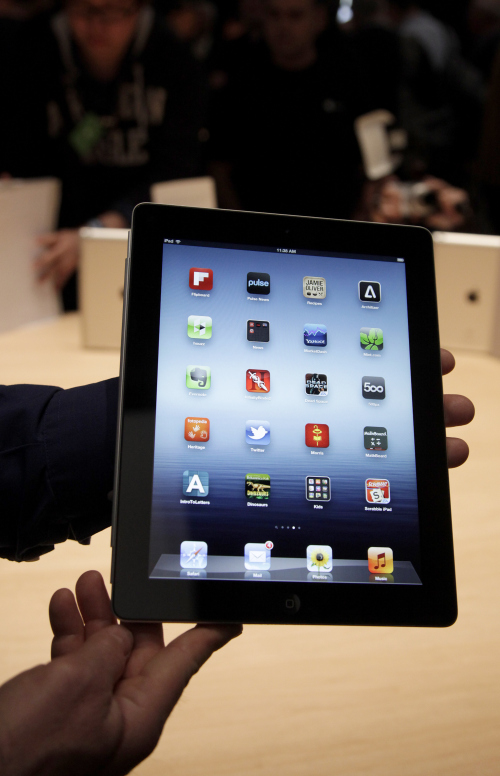


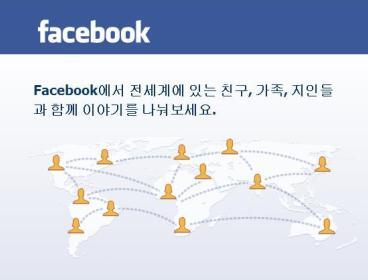



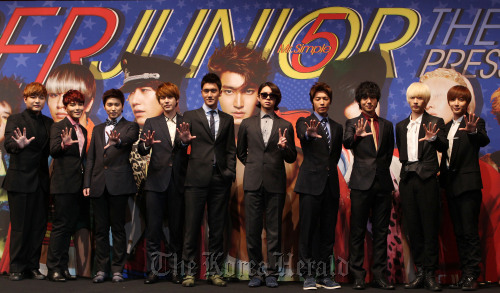


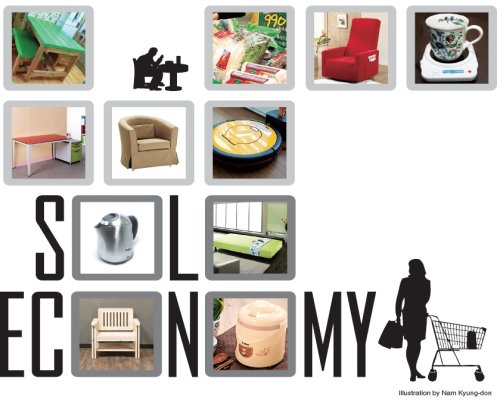
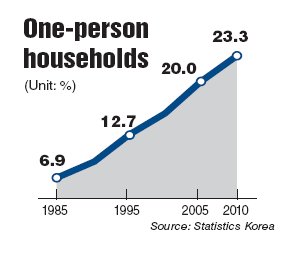








 Today, March
6, marks the 55th Independence Anniversary of the Republic of Ghana. Formed from
the merger of the British Colony of the Gold Coast and the Togoland trust
territory, Ghana in 1957 became the first sub-Saharan country in colonial Africa
to gain its independence.
Today, March
6, marks the 55th Independence Anniversary of the Republic of Ghana. Formed from
the merger of the British Colony of the Gold Coast and the Togoland trust
territory, Ghana in 1957 became the first sub-Saharan country in colonial Africa
to gain its independence. the cause of
African unity which led to the formation of the Organisation of African Unity
(OAU), now the African Union (AU). Ghana became a sovereign member of the United
Nations, the Commonwealth and the Non-aligned Movement and
ECOWAS.
the cause of
African unity which led to the formation of the Organisation of African Unity
(OAU), now the African Union (AU). Ghana became a sovereign member of the United
Nations, the Commonwealth and the Non-aligned Movement and
ECOWAS.


